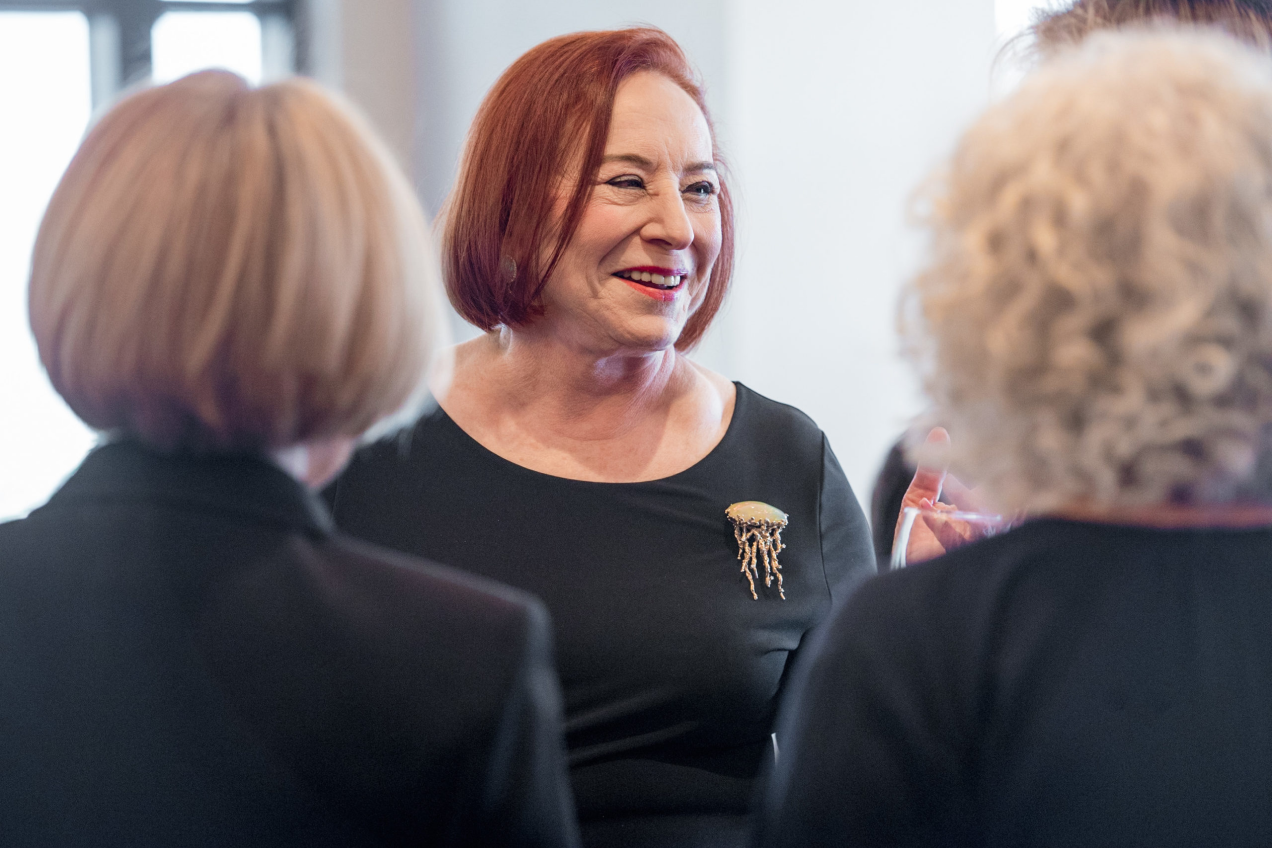Women were intentionally excluded from participating in most medical research, setting a dangerous precedent that overlooked fundamental biological differences between women and men.
In 1990, the Society for Women’s Health Research (SWHR) was founded by Dr. Florence Haseltine to confront this injustice and change the culture of medical research. Thanks to SWHR and other advocacy groups, women are now routinely included in medical research and make up a larger portion of the scientific workforce, and scientists are studying how biological sex differences affect the prevention, diagnosis, and treatment of disease.
Since its founding, SWHR has fought to bring attention to research gaps and unmet needs in women’s health and to advance its mission to eliminate imbalances in care for women through science, policy, and education.
SWHR is making women’s health mainstream.

 Florence Haseltine, PhD, MD, organized a meeting at the American College of Obstetricians and Gynecologists (ACOG) to discuss the state of research on women’s health. This meeting set the stage for the Society for Women’s Health Research (originally called the Society for the Advancement of Women’s Health Research).
Florence Haseltine, PhD, MD, organized a meeting at the American College of Obstetricians and Gynecologists (ACOG) to discuss the state of research on women’s health. This meeting set the stage for the Society for Women’s Health Research (originally called the Society for the Advancement of Women’s Health Research).